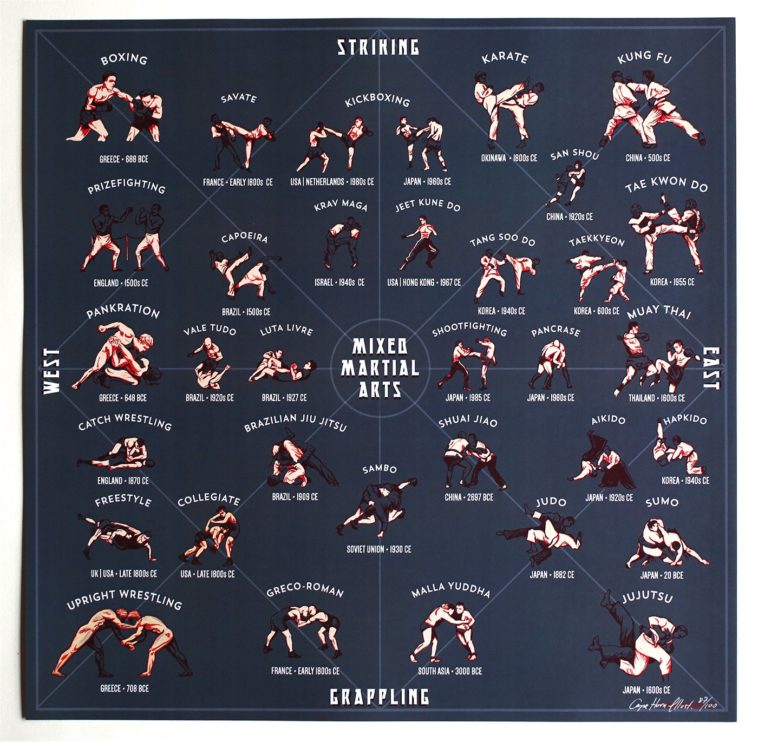The Background And Evolution Of Martial Arts All Over The World
The Background And Evolution Of Martial Arts All Over The World
Blog Article
Writer-Stevenson Vick
Martial arts have a fascinating background that spans centuries and continents. You could discover it fascinating just how ancient methods like Shuai Jiao and Kalaripayattu prepared for modern combat techniques. These techniques not just stress physical abilities however additionally reflect the cultures that birthed them. As you discover their advancement, take into consideration exactly how globalization has changed these typical kinds right into hybrid styles. What impacts do you assume have formed today's martial arts landscape?
Ancient Martial arts: The Foundations of Fight
As you delve into the world of ancient martial arts, you'll discover the abundant structures that formed combat techniques across cultures. Very early methods focused on Self-Defense and survival, usually integrating strikes, hurting, and weapons.
In ancient China, for instance, techniques like Shuai Jiao highlighted tosses and joint locks, while India's Kalaripayattu showcased agility and liquid motion. Japanese samurai created Kenjutsu, a refined swordsmanship that highlighted technique and method.
These martial arts offered not just for battle yet also as a way of personal development, instilling values like respect and determination. check this link right here now mixing of these strategies with time prepared for the diverse martial arts you see today, each mirroring the special ideologies and requirements of its culture.
The Social Influence on Martial Arts Growth
While martial arts commonly mirror the practical needs of a culture, they also symbolize the social worths and ideas of their beginnings. When https://hectordrdoz.blogscribble.com/35153796/comprehending-the-principles-and-relevance-of-taekwondo-patterns discover different martial arts, you'll see just how they're influenced by faith, approach, and social norms.
As an example, the focus on regard and discipline in Japanese martial arts comes from Zen Buddhism and samurai society. On the other hand, Brazilian Jiu-Jitsu promotes versatility and method, formed by the need for performance in a varied, modern environment.
first true mixed martial arts could discover that the rituals, attires, and training approaches reflect an area's background and identity. By recognizing these cultural impacts, you grow your recognition of martial arts and their duty fit human experiences across the globe.
Modern Adaptations and the Globalization of Martial arts
Martial arts have actually changed significantly in recent decades, adapting to contemporary society and international impacts. You'll observe that traditional kinds have blended with modern strategies, creating hybrid styles like mixed martial arts. These adjustments satisfy varied target markets, making martial arts available and appealing around the world.
With the increase of social media sites and digital platforms, you can find tutorials and competitors from all corners of the world, breaking geographical obstacles. This globalization has caused a shared admiration for various self-controls, from Brazilian Jiu-Jitsu to Taekwondo.
As karate lessons for adults near me involve with these arts, you'll recognize they're not almost battle; they advertise physical fitness, discipline, and mental wellness.
Eventually, contemporary adaptations have actually enriched the martial arts landscape, making it a vibrant and advancing technique.
Verdict
In discovering the history and evolution of martial arts, you discover a fascinating blend of strategies, cultures, and philosophies. From ancient self-controls like Shuai Jiao and Kalaripayattu to the contemporary adaptability seen in mixed martial arts, martial arts reflect humankind's mission for Self-Defense and individual development. As you involve with these methods, you not only obtain skills however additionally a deeper appreciation for the diverse practices that shape our world today. So, continue your trip and welcome the art of battle!
